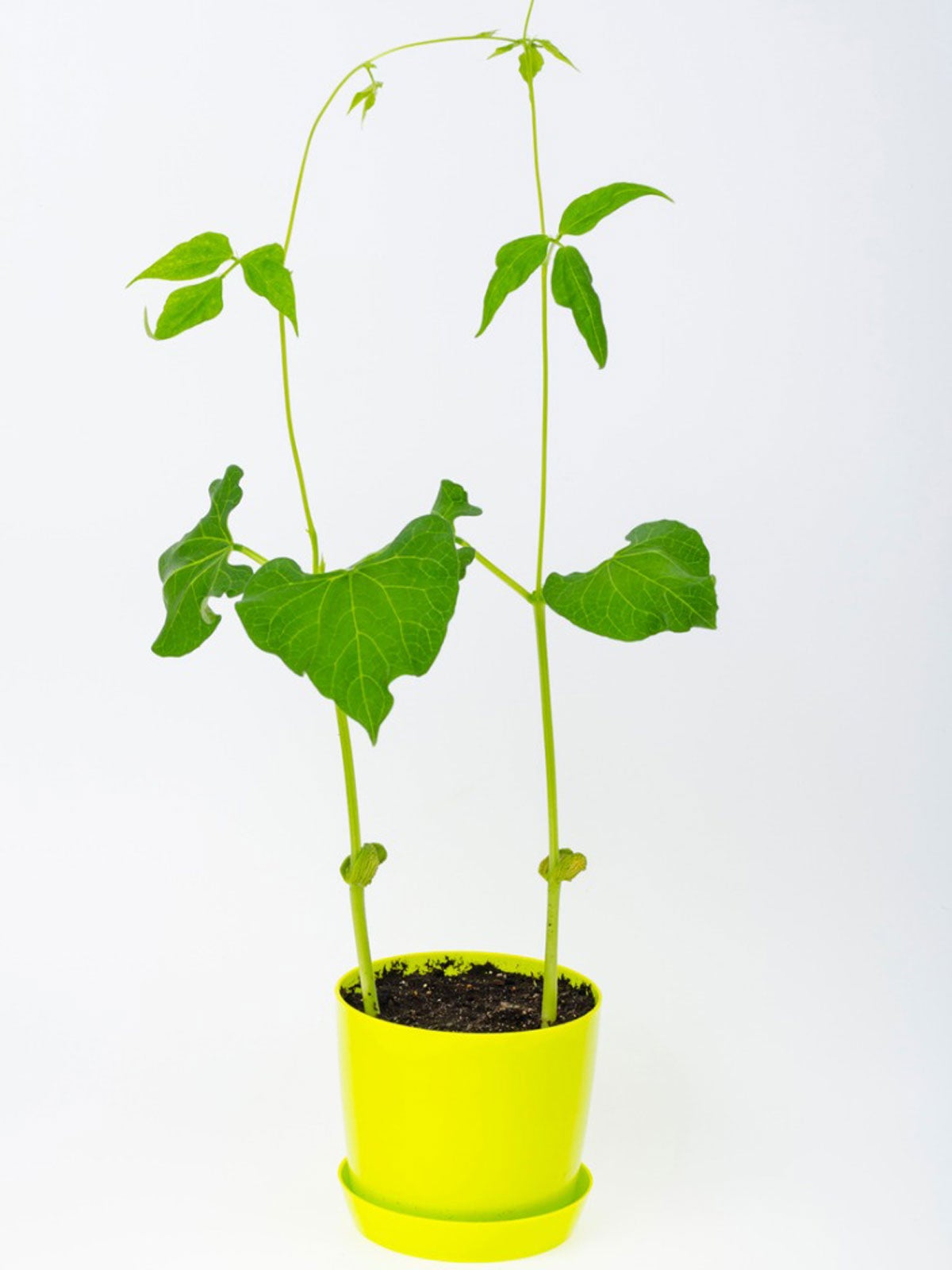Potting Mix And Container Size For Growing Beans - Tips On How To Grow Beans In Pots


Sign up for the Gardening Know How newsletter today and receive a free copy of our e-book "How to Grow Delicious Tomatoes".
You are now subscribed
Your newsletter sign-up was successful
Beans may be vined or bushy and come in several sizes and colors. They are primarily a warm season vegetable that is best grown in spring but can also be started for a late summer harvest in some temperate zones. Gardeners with small spaces can learn how to grow beans in pots. Growing beans in containers is also useful for early starting where soil temperatures remain too cool for in-ground potting. These plants will need to be brought indoors at night to protect them from possible freezing temperatures.
Container Size for Growing Beans
The depth of the container size for growing beans varies dependent upon the type of vegetable. Pole beans need 8 to 9 inches (20-23 cm.) of soil, whereas bush beans can do with only 6 to 7 inches (15-18 cm.). Ensure that the pot has several unobstructed drainage holes when growing beans in containers. While the appearance of the pot isn't important, using unglazed pots will help the containers to “breathe” and allow for the evaporation of excess water so the plants don't drown. The number of plants you can sow in a container depends on the diameter of the pot. As a rule, plan on nine plants for every 12 inches (30 cm.) of surface space. Use a seed variety that produces well in container gardening such as Kentucky Wonder, Blue Lake pole or Topcrop.
How to Grow Beans in Pots
Whenever you are growing beans in containers, the most important components to consider in the successful care for potted bean plants are the soil type, drainage, pot depth and ambient conditions. Fill your container with the proper potting mix for beans and other vegetables. You can purchase a vegetable start mix or make your own. Use equal parts sphagnum moss or compost with pasteurized soil and vermiculite or perlite. Incorporate vegetable fertilizer or manure prior to planting. You can also use a soilless medium as a potting mix for beans. Plant the seeds an inch (2.5 cm.) deep and provide even moisture until the seeds germinate. Space the seeds 3 inches (7.6 cm.) apart or plant two to three seeds around each pole for vining varieties.
Care for Potted Bean Plants
Your bean seeds will germinate in five to eight days. Once they have pushed up, spread mulch lightly over the surface of the soil to help conserve moisture. Bean plants need plenty of water, and this is especially true with the care of potted bean plants. You need to provide irrigation when the top 2 to 3 inches (5 to 7.6 cm.) of soil is dry to the touch. Fertilize once a month with a diluted liquid vegetable fertilizer unless you mixed a time-release food into the soil medium. Provide pole beans with a long stick or pole to climb up. Alternatively, insert a tomato cage into the container for the vegetables to twine around. Bush beans need no special support. Watch for insects and other pests and combat with vegetable-friendly products such as horticultural soap or neem oil. Growing beans in containers should provide you with edible pods in 45 to 65 days when grown in full sun. Harvest the beans when the pods are medium sized with firm pods. Use them fresh for the best taste, or you can freeze or can them to enjoy far past the season.
Sign up for the Gardening Know How newsletter today and receive a free copy of our e-book "How to Grow Delicious Tomatoes".

Bonnie Grant is a professional landscaper with a Certification in Urban Gardening. She has been gardening and writing for 15 years. A former professional chef, she has a passion for edible landscaping.